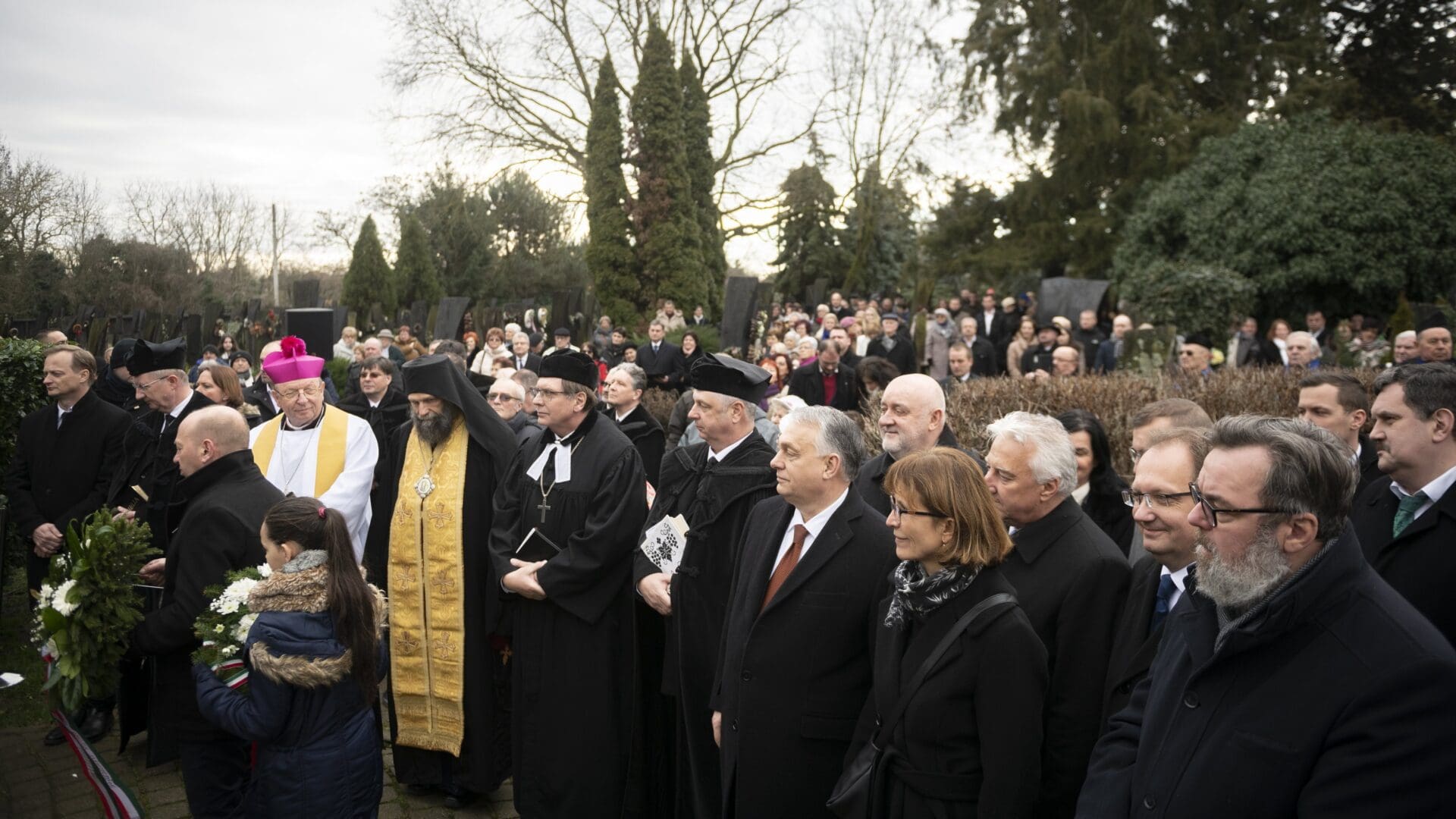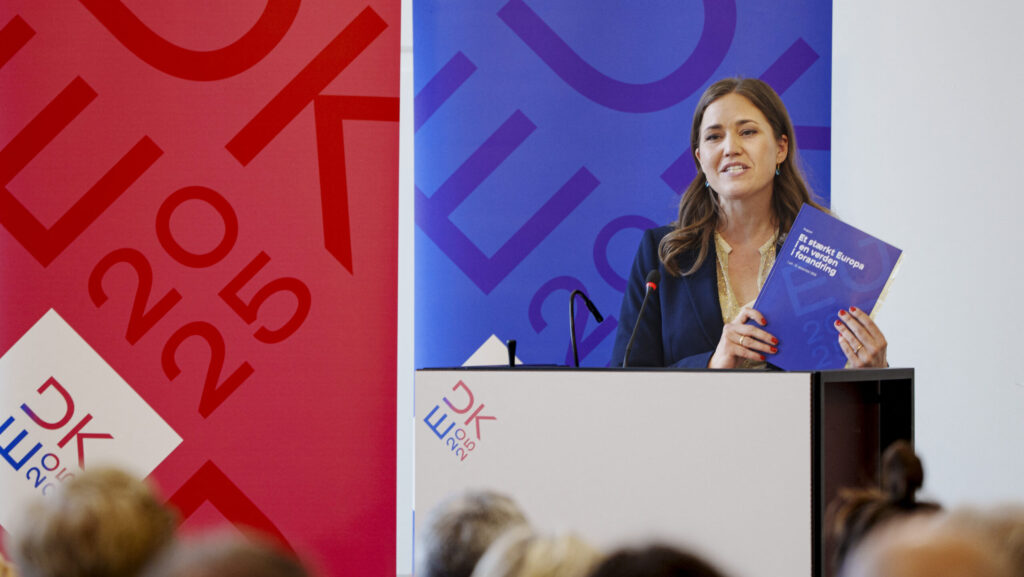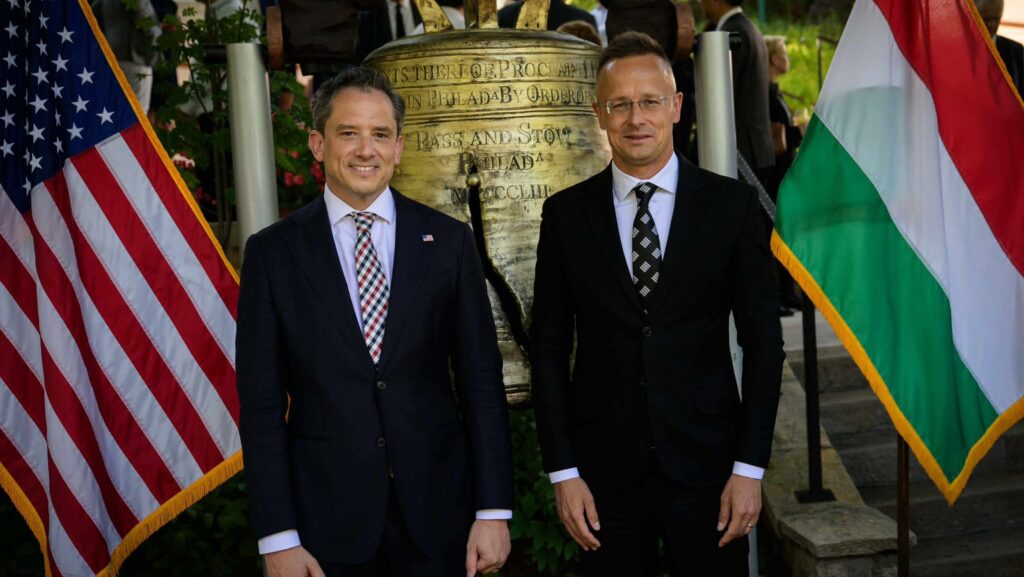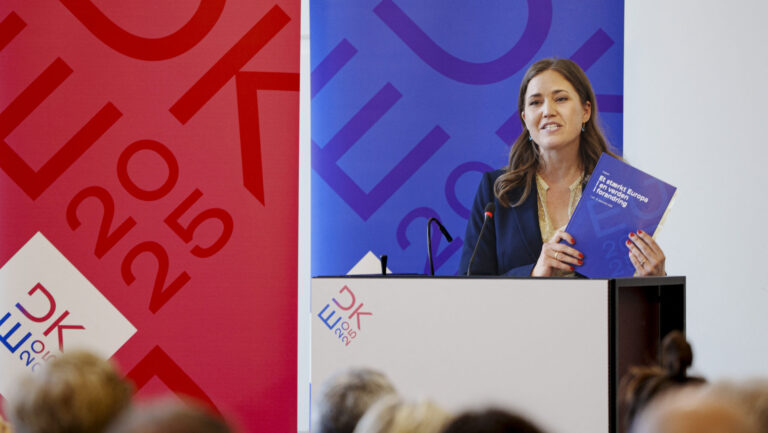It is ‘truly right and just’ to commemorate the birth of the national anthem on the Day of Hungarian Culture, the Hungarian Prime Minister said on Sunday at an ecumenical ceremony in Szatmárcseke in North Eastern Hungary. It was in Szatmárcseke that on 22 January 1823, Hungarian poet Ferenc Kölcsey completed his Hymn, which would later become the country’s national anthem.
‘Hungarians Must Remain True to Themselves’
Viktor Orbán asserted that, even when looking over a period of a thousand years, no other work of Hungarian culture has had the power to uplift hearts the way the Hymn does. We would arrive at the Hymn, the prime continued, if we decided to attempt the difficult challenge of distilling everything that is Hungarian and everything that makes Hungarians Hungarian into a single piece of art. ‘The hymn serves as a reminder that, despite the magnitude and quantity of our crimes, the Good Lord did not erase us from existence and that, as a result, we have earned the right to a future,’ Viktor Orbán declared.
‘The Hymn serves as a gentle reminder that we Hungarians, like all Christian people who comprehend the concepts of sin and forgiveness, have good reason to engage in acts of repentance. As there are many shortcomings and flaws in humans, Hungarians are not entirely blameless either. The only question is what we do with this acknowledgment and admission,’ he continued, asking: ‘Should we kneel in the centre of a football field? Or should we pull down the statues of our great forefathers? Should we reject and eradicate our thousand-year-old culture? Should allow self-appointed, cosmopolitan, liberal censors to selectively narrate and rewrite the history of the Hungarian people?’ That is not what the most significant line in Hungarian historical literature, ‘This nation has suffered for all sins of the past and of the future’ says, the prime minister reminded.
From a Christian perspective, this does give Hungarians a free pass to commit additional sins. ‘This statement signifies that even though the quantity and severity of our crimes may be great, the Good Lord did not eliminate us from the face of the earth. He chastised us, but He also gave us the opportunity to carry on with our history. The only explanation is that our merits and virtues are numerous,’ he added.
Viktor Orbán remarked:
‘If there is a virtue that can earn the reward of survival, it is to consistently remain true to ourselves.’
In his address, the prime minister also stated that ‘this is why today we can still resist the calls of the sirens’ that tempt us to ‘stand on the right side of history.’ He added, ‘This is why we cannot flinch and get sucked into the whirlwind of an ever-bloodier war, this is why we want a truce, dialogue, and peace.’ Viktor Orbán said Hungarians have come to understand that it is the big powers that score the ultimate victories who determine what the good side of history is, and they are not the interested in what is good or bad for Hungarians. Hungarians therefore must make sure to ‘stay on the Hungarian side of history even in the most complicated and challenging situations.’
Viktor Orbán emphasised that Hungarians have the right ’to say who can come here and who can stay; who can live with us and who cannot; and we also want to determine how our life can connect with our neighbours.’
Gergely Gulyás: The Hymn Unites All Hungarian-Speaking People
Gergely Gulyás, Minister of the Prime Minister’s Office addressed the ethnic Hungarian community in a speech delivered at Dunaszerdahely (Dunajska Streda in Slovakia) on Sunday. He revisited the history of the creation of the Hymn, talking about how it gained popularity. He added that Kölcsey’s piece guided and followed Hungarians throughout history. ‘It was with us in the lost but survived 20th century, in the hell of battlefields and prisons, and even when the decision in Trianon tore not only our country, but also our nation apart.’ He emphasised that the Hymn, the national prayer of Hungarians, is ‘here with us in the 21st century that is waiting to be discovered.’
He added that Kölcsey’s poem allows us to symbolically celebrate Hungarian culture and it unites all Hungarian-speaking people in the Carpathian Basin and in the world.’ The minister noted: ‘Culture is like peace, it connects us. Culture knows and understands, it does not destroy or tear apart, it does not rewrite history and it does not rewrite names on gravestones. When we are protecting our culture, we are protecting us being united.’ He emphasized that ‘every community has their own culture and every culture is alive until its community keeps it alive.’
He finished his address by saying that the 20th century and the war have taught Hungarians what peace and culture represent. ‘We are advocates of the friendship among nations and peace. We know that when someone tries to eradicate a nation, it can only lead to war, rivalry and breaks in unity.’








